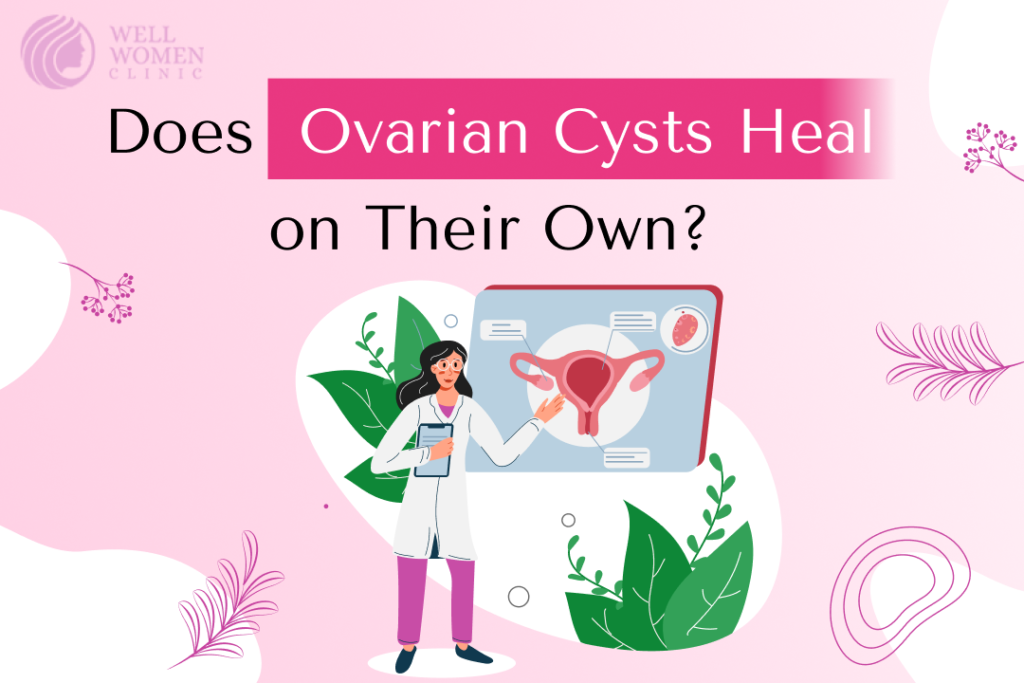An ovarian cyst is a fluid-filled sac that develops on the outside or inside of one or both of a woman’s ovaries. Most women have at least one of these in their lives.
Ovarian cysts can sometimes cause the following signs and symptoms:
- Bloating or swelling in the stomach
- Bowel movements that hurt
- Pain during a sexual act
- Pain in the low back
- Feeling sick and puking.
There are many kinds of cysts, and each one can affect your health and fertility. But it is often easy to deal with and may require an ovarian cyst treatment from an experienced gynaecologist.
To learn more about the risks of ovarian cysts and what they mean for your health, it’s essential to work with a medical team with years of experience giving quality care.
If you are worried about ovarian cysts, then we at Well Women Clinic our team of the best private gynaecologist help you with the removal of ovarian cysts.
What Causes A Cyst In The Ovary?
The majority of cysts are called “functional cysts.” They happen when you have your period and are usually harmless. There are two kinds of this type:
Cysts in Follicles
These happen in the middle of your menstrual cycle when an egg bursts out of an ovarian follicle (a sac filled with fluid in the ovary that makes hormones) and moves into the fallopian tube, when the egg is stuck in the ovary and doesn’t get out, cyst forms.
Corpus Luteum Cysts
When the egg is released from the ovarian follicle, the follicle starts making hormones like oestrogen and progesterone. It is called the corpus luteum. At this point, when fluid builds up inside the follicle, the cyst forms. These cysts usually don’t hurt and go away on their own after two or three cycles.
Dermoid cysts, cystadenomas, and endometriomas are less common types of ovarian cysts. Dermoid cysts, also called teratomas, come from cells in the embryo. Cystadenomas are bumps that form on the surface of the ovary. They can be filled with water or mucus.
Endometriomas happen when endometrial cells grow outside the uterus, called endometriosis. When endometrial cells grow outside of the uterus, they attach to the ovary and make growth.
These cysts can get very big and cause other problems. Hormonal changes, pregnancy, endometriosis, a previous cyst, and a pelvic infection are all things that can cause ovarian cysts.
What Do They Do To The Body?
Functional cysts don’t do much to the body, but ovarian cysts, which are less common, can be dangerous.
Dermoid cysts and cystadenomas can cause torsion of the ovary. This happens because an enlarged cyst twists the ovary, slowing blood flow to the ovaries. This could make you feel very sick and make you throw up.
Another possibility is that a cyst bursts, which can cause pain in the abdomen and bleed inside the body. This is more likely to happen if the cyst is bigger and you have sex.
When Should They Get Help?
You might not even feel a functional cyst, so you usually don’t need to treat it. Regular ultrasound exams can help check for problems and treat any symptoms if a cyst is found. If the symptoms are bad, our team of private gynaecologist will treat the ovarian cyst. You may not even know you have an ovarian cyst most of the time. But you should see us if you have symptoms that could mean you have an ovarian cyst.





